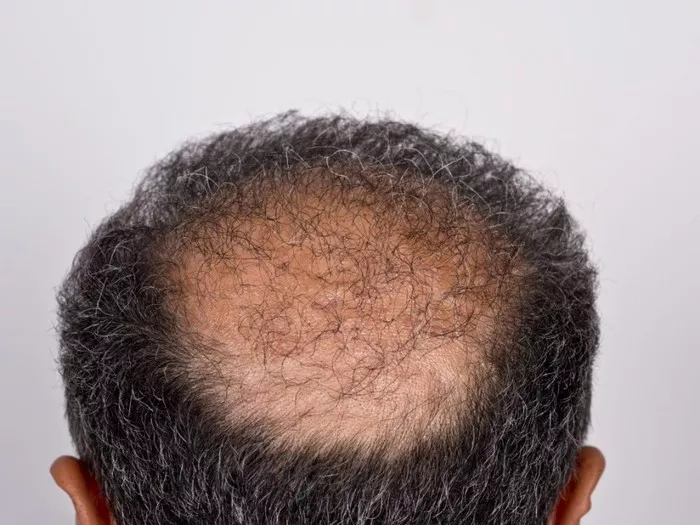In the quest for understanding the myriad factors contributing to hair loss, the connection between pernicious anemia and this pervasive issue often remains unexplored. In this comprehensive article, we will delve into the complex relationship between pernicious anemia and hair loss, providing insights and recommendations to help you address this concern effectively.
1. Understanding Pernicious Anemia
Before we delve into the potential link between pernicious anemia and hair loss, let’s first understand what pernicious anemia is.
1.1 Definition and Causes
Pernicious anemia is a type of anemia caused by the body’s inability to absorb sufficient vitamin B12, which is crucial for the production of healthy red blood cells. Common causes include autoimmune conditions that damage the stomach lining, leading to reduced B12 absorption.
1.2 Symptoms and Complications
Pernicious anemia can lead to various symptoms such as fatigue, weakness, pale skin, and neurological issues. One of the lesser-known symptoms is hair loss, which can be particularly distressing for those affected.
2. The Link Between Pernicious Anemia and Hair Loss
Now that we have a foundational understanding of pernicious anemia, let’s explore how it can contribute to hair loss.
2.1. Vitamin B12 Deficiency and Hair Health
Vitamin B12 is essential for the production of red blood cells and the health of the circulatory system. When B12 levels are insufficient due to pernicious anemia, it can lead to poor circulation in the scalp, which negatively impacts hair follicles.
2.2. Impact on Hair Follicles
Inadequate blood flow to the scalp can weaken hair follicles, causing hair to become thin, brittle, and more prone to shedding. This can result in noticeable hair loss over time.
2.3. Delayed Regrowth
Hair loss due to pernicious anemia can be particularly distressing because regrowth may be delayed even after B12 treatment begins. It’s essential to be patient and consistent with treatment.
3. Diagnosing Pernicious Anemia-Related Hair Loss
If you suspect that pernicious anemia might be the cause of your hair loss, it’s crucial to seek proper diagnosis and treatment.
3.1. Consultation with a Healthcare Professional
A healthcare professional can conduct blood tests to determine your B12 levels and confirm the presence of pernicious anemia.
3.2. B12 Injections and Supplements
Once diagnosed, treatment typically involves regular B12 injections or supplements to correct the deficiency. This, in turn, can help improve hair health.
3.3. Monitoring and Patience
After initiating treatment, it’s essential to monitor your progress and be patient. Hair regrowth may take several months, and it’s crucial to continue treatment as prescribed.
4. Preventing Hair Loss Due to Pernicious Anemia
While addressing the root cause of hair loss related to pernicious anemia is essential, there are also steps you can take to manage and potentially prevent further hair loss during the recovery process.
4.1. Gentle Hair Care
Use mild, sulfate-free shampoos and conditioners to reduce hair breakage. Avoid excessive heat styling and tight hairstyles that can further stress your hair.
4.2. Nutrient-Rich Diet
Incorporate a well-balanced diet rich in essential nutrients, including B12, to support overall hair health.
4.3. Stress Management
Stress can exacerbate hair loss. Practicing stress-reduction techniques such as meditation or yoga can be beneficial.
5. The Importance of Seeking Professional Advice
Dealing with hair loss caused by pernicious anemia is a complex and challenging journey. It’s essential to emphasize the importance of consulting with healthcare professionals throughout the process.
5.1. Tailored Treatment Plans
Healthcare professionals can design individualized treatment plans to address your specific needs and monitor your progress.
5.2. Support and Guidance
Medical experts can provide valuable guidance and support, helping you cope with both the physical and emotional aspects of hair loss.
See Aso: [Revealed!] The Best Nutrients for Lustrous Locks
6. Conclusion: Managing Hair Loss Due to Pernicious Anemia
In conclusion, hair loss related to pernicious anemia is a significant concern that affects many individuals. Understanding the relationship between this condition and hair loss is the first step toward finding solutions. Seeking professional diagnosis and treatment is crucial, and a combination of medical intervention and healthy lifestyle choices can help manage and potentially reverse hair loss associated with pernicious anemia. Remember that patience and consistency are key as you embark on this journey to restore your hair’s vitality.


